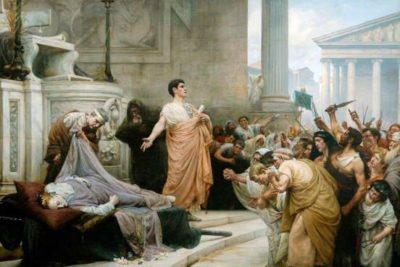The DSA is full of divides and false dichotomies. So let’s try to intervene against some of that. Some in the DSA world divide the org’s electoral strategy into two possible routes. The first one amounts to collaboration with – and capitulation to – the Democratic Party and its interests. And the second is a Bolshevik inspired strategy called ‘Tribunes of the People.’ In that latter strategy, a core of united DSA elected officials stick to the party line and agitate the working class into a political force.
Various DSA caucuses, usually obscure and sectarian ones, promote this division. But in light of actions from The Squad and majority factions within the DSA, we’ve seen it erupt in larger DSA blocs and spaces. Such as the recent public event put on by several DSA caucuses.
I share many of the critiques of the DSA ‘majority’ faction’s electoral strategy. That strategy amounts to a shortcut to build on-paper membership in the short term without building a sustainable organization that can win power in the medium or long term.
But I’m hardly more impressed by the Tribunes of the People strategy. Let’s talk about that.
Tribunes of the People
Understanding history isn’t necessary to endorse the Tribunes of the People strategy. But it would help us critique it. In short, it’s based on a Roman historical analogy. Roman tribunes loudly raised popular issues in public places and during election season. Why? To agitate ordinary Romans to support the person pounding the table for things like land reform. Successful tribunes, according to the analogy, rose up and took power on the basis of worker agitation, showering upon the people all the benefits they fought for.
This analogy motivated the ‘Tribunes of the People’ resolution that Marxist Unity Group proposed for the 2021 DSA National Convention and defended in Cosmonaut. Of course, they aren’t merely a bunch of Roman history nerds. They also used historical analogies to the Engels led German Social Democratic Party of the late 19th century and the Leninist Bolsheviks of the early 20th. Some even add more details, like requiring politicians to limit their salary to that of the average worker.
Tribunes of the People is supposed to begin with an open debate among rank and file DSA members to elect leaders and decide on a platform. The leaders and platform focus on the issues most likely to agitate workers into action. And then all DSA elected officials follow the platform and submit to ‘party discipline.’ They run for office as a slate, form a socialist caucus, and then vote according to party doctrine.
Roman Tribunes
For a moment, I want to set aside the most obvious problem with all this. Namely, imposing ‘party discipline’ would almost certainly turn off lots and lots of prospective (and current) DSA members. And it would stifle dissent within the org. It would probably doom the org’s electoral candidates, since their opponents could wield party discipline as a weapon against them. Advocates for Tribunes of the People have no compelling response to these concerns.
But, again, I’m setting that aside. Instead I want to focus on an overlooked problem with Tribunes of the People. It misses most things about how Roman tribunes actually operated. And we can learn a few things from the disanalogies.
Did tribunes sometimes agitate ordinary Romans? Yes. Most famously, the Gracchi brothers did it in the 130s and 120s BCE. They may have even been serious about their stated desire to achieve land reform, democratize the judiciary, curb the Senate’s power, create state-subsidized grain for the masses, and so on. But they also deposed others from office undemocratically, tried to exceed their legal and political powers, tried to extend their terms contrary to Roman law and norms, and generally behaved like demagogues.
And that’s the Gracchi, certainly the closest thing we have to a positive vision of the Tribunes of the People strategy in the Roman Republic. Many tribunes amounted to nothing more than wealthy demagogues using a popular platform to try to become authoritarian leaders. Ultimately, Augustus replaced the Roman Republic with an imperial system. And he ran many of his official powers through the office of the tribune.
So, there’s that.
Lessons
I think it’s a great idea to have a more open discussion of DSA politics. And the org may even want to say a bit about what kind of socialist system it prefers. At the same time, DSA should retain its commitment to ‘big tent’ socialism. For the most part, that precludes some of what Tribunes of the People advocates want.
‘Party discipline’ flops for a wide range of reasons. But big problems in the ‘Tribunes of the People’ analogy reveal some of them.
Tribunes aren’t all that great. They’re often rich demagogues. They manipulate institutions and doctrines for their own benefit. They rile people up, but they do so without developing the people’s organization and commitment to a larger vision of socialist strategy. Instead, they inculcate in the people personal loyalty to themselves.
And so, creating tribunes, especially before doing deeper organizing, lays down conditions for demagoguery and authoritarianism.
